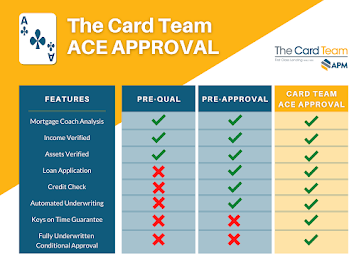Groundhog day has come and gone, and here in Southern
California we noted a shadow, predicting more wintry weather. At least we are not dealing with blizzards
like much of the country!
INTEREST RATES
It is definitely feeling wintry when looking at the interest
rate climate. Rates continue to rise and
we are also facing new “Loan Level Pricing Adjustments” for high-balance
conforming loans (those over $647K) as well as big pricing adjustments for second
homes.
The rise in interest rates have a great effect on
affordability as you can see here:
$700,000 loan at 3.5% carries a Principal and Interest payment
of $3143. The same $700,000 loan at 4% carries a payment of $3342. This $200/month difference can make or break
it for some buyers/homeowners. There is
no time to delay in moving forward with a home purchase or refinance. As rates continue to rise it may influence
home prices/values, but for now inventory remains so low that there is no relief
in sight from rising prices.
TAX TIME
Please have your Home Loan Officer review your draft returns
prior to filing if you are self-employed or own rental real estate. I cannot stress the importance of this
enough. We frequently see tax returns for self-employed individuals as well
as corporate returns where a small adjustment here or there can make an
enormous difference in the income used to qualify for a home loan. If you are planning to buy or refinance in
the coming year, make this a priority.
PREQUAL vs. PRE-APPROVAL vs. ACE APPROVAL
There are a lot of misconceptions about these terms when a
buyer is making an offer to purchase a home.
As Real Estate Agents know, sometimes “prequal” or “pre-approval” letters
are not worth the paper they are printed on.
A “Prequal” is typically based on a phone conversation providing verbal
information on income and assets.
I have
yet to speak with a self-employed individual who accurately reported their
income to me verbally. A “Pre-approval” is based
on income and asset documentation provided to your lender, along with a
completed loan application and a credit pull.
With these the lender can run automated underwriting – universally used
today – and provide an automated underwriting approval.
An ACE approval is a full underwriting approval subject to
only identifying a property and obtaining an appraisal. Either the human
underwriter or the Artificial Intelligence underwriter, that actually reads the
documentation in the file, has reviewed everything and approved the borrower
for a specific loan amount. We strongly
suggest obtaining an ACE approval (otherwise known in the industry as a TBD
approval) given current market conditions.
It is so competitive! With an ACE
approval we can shorten contingency periods or remove them altogether, offer
shorter escrow periods, and even waive appraisal contingencies depending on the
borrower. Why did we name it the ACE approval? We are the CARD TEAM after all-- and hold all
the Aces!
REVERSE LOANS
Baby Boomers are retiring right and left. By the year 2030 all Baby Boomers will have
turned 65. Whenever we work with clients
approaching retirement or already retired, we always show them various financing
options, to include reverse loans. These
are helpful in a number of ways, including improving monthly cash flow by
eliminating the mortgage payment; or
providing an income stream in various forms such as a line of credit or fixed
monthly distributions. They are also a useful
tool for financial planners to use in down market years (to avoid liquidating pre-tax
funds which is costly) since the income from a reverse loan is tax free.
There are many misconceptions still floating around about
reverse loans:
1. The bank does not own the home or take title
after the borrower passes. The home goes
to the heirs. The owner remains on title
throughout the life of the loan.
2. You can’t outlive your reverse loan. The only event of default is failure to pay
your taxes, insurance or permanent move-out.
You must live in the property. The loan is non-recourse and there is no
time limit involved.
3.
A reverse loan does not affect Social Security
or Medicare.
4.
Reverse loans are no more expensive than a
typical FHA loan, and with jumbo reverse loans the costs are similar to a
regular refinance.
As always, please reach out to us with any questions or
concerns. We are here to be a resource
to our clients.








